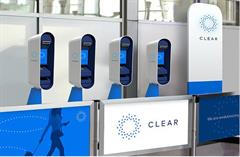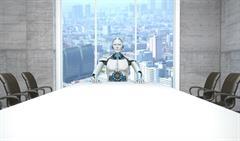Your cart is currently empty!
Tech News Digest May 15

Biometric ID firm CLEAR Launches Coronavirus Screening Product for Business
CLEAR, a biometric ID company, has launched a new product for screening visitors to businesses for the coronavirus, according to reports. The company is widely known to travelers for its airport security kiosks.
“CLEAR is introducing a new product that will link personal health data to verified IDs to help businesses screen employees for COVID-19 as they return to work,” writes Bryan Walsh of Axios. “The company will roll out the product, called Health Pass by CLEAR, in the week ahead.”
Walsh writes that CLEAR says it is “in conversations with potential business partners including the restauranteur Danny Meyer and the New York Mets, as well as Las Vegas’ COVID-19 recovery task force.”

Visionary CEOs Return to Primary Leadership Roles
Here’s an item I find absolutely fascinating: A handful of top-tier CEOs who had gradually stepped back before the pandemic have quietly returned to primary leadership roles in their organizations.
“Over the past few months, some of the world’s biggest companies’ CEOs have reasserted themselves in ways they haven’t in the past,” writes Ethan Wolff-Mann of Yahoo Finance.
The article cites the “return” of legendary CEOs such as Mark Zuckerberg of Facebook, Jeff Bezos of Amazon and Bob Iger of Disney.
“Bob Iger … retired from top management in February, postponing something that he had planned to do for many years. He stayed on as the company’s chair, overseeing his successor Bob Chapek. But after a few weeks, as the New York Times reported, Iger has “smoothly reasserted control,” writes Wolff-Mann.

Drive to Automation Accelerates
The robots are arriving, at a faster pace than ever before. The massive disruptions caused by the pandemic are genuinely transforming every aspect of the economy, especially in the realm of automation.
“COVID-19 will accelerate a process of automation that was already well underway in many sectors. Research shows that the global financial crisis of 2008-2009 already led to the replacement of many workers with machines,” write Alex Kliment and Willis Sparks of GZERO.
The shape and size of the workforce is definitely changing, creating legions of new opportunities and challenges. Some of the transitions will be swift, while others will unfold over several years.
“It won’t happen all at once. This kind of change takes lots of investment,” write Kliment and Sparks. “Some jobs are easier to automate than others … In the U.S. and Europe, employers will be looking in particular to automate many of the millions of retail, services, and manufacturing jobs that have been vacated in recent weeks.”

Facebook Building Huge Undersea Cable to Improve Internet Connectivity in Africa
Facebook is building a 23,000-mile long cable to designed to boost Internet access in Africa and improve online connectivity for the continent’s 1.3 billion inhabitants.
“The social media company has partnered with the likes of China Mobile, South Africa’s MTN, France’s Orange and Britain’s Vodafone as well as local network operators on the project, dubbed 2Africa,” writes Ryan Browne of CNBC. “It’s tasked Nokia-owned cable systems provider Alcatel Submarine Networks with building the subsea cable.”
When fully operational, the cable “will interconnect 23 countries in Africa, the Middle East and Europe,” writes Browne.

Google Aims to Help Developers Write Quantum Machine Learning Apps Faster and Easier
As the business value of machine learning becomes more widely understood and appreciated, Google is making it easier for developers to create ML apps and invent new algorithms.
“Google is releasing free open-source software that will make it easier to build quantum machine-learning applications. TensorFlow Quantum is an add-on to Google’s popular TensorFlow toolkit,” writes Will Douglas Heaven in the MIT Technology Review.“TensorFlow Quantum will let you write quantum apps without getting bogged down in the details of the hardware they are running on. A switch lets you flick between an actual quantum computer and a simulation of one on a classical machine. This means that you can debug your quantum app in a simulation before trying to run it on a full-blown quantum setup.”

DARPA Prepares to Launch Blackjack Satellite
In an effort to provide extremely precise real-time data to military assets, a major government technology organization is planning to launch its own fleet of ultra-sophisticated satellites equipped with supercomputer processing chips.
“The Defense Advanced Research Projects Agency will launch its first Blackjack satellite into orbit later this year, with more to follow in 2021,” writes Nathan Strout of C4ISRNET. “With Blackjack, DARPA seeks to demonstrate the value of low earth orbit satellites for the Department of Defense. The small satellites will carry advanced technologies that will demonstrate space-based mesh networks and constellation autonomy.”

For Many Industries, Work-at-Home is the New Normal for the Foreseeable Future
For many sectors of the economy, the changes imposed by the pandemic won’t be temporary. The crisis has dramatically accelerated the shift to remote work, and the trend seems unlikely to continue for the foreseeable future.
Despite political pressure, “companies in technology, financial services, insurance and other industries that can successfully function over internet lines are choosing to keep their people home,” writes Ari Levy of CNBC. “Long commutes have been replaced with heavy Zoom use, and workers in big cities are in no hurry to sit on crowded subways and buses during rush hour.”


